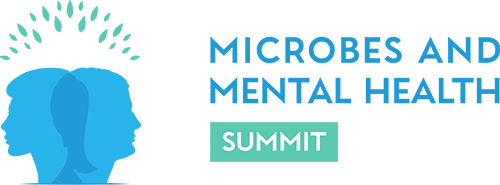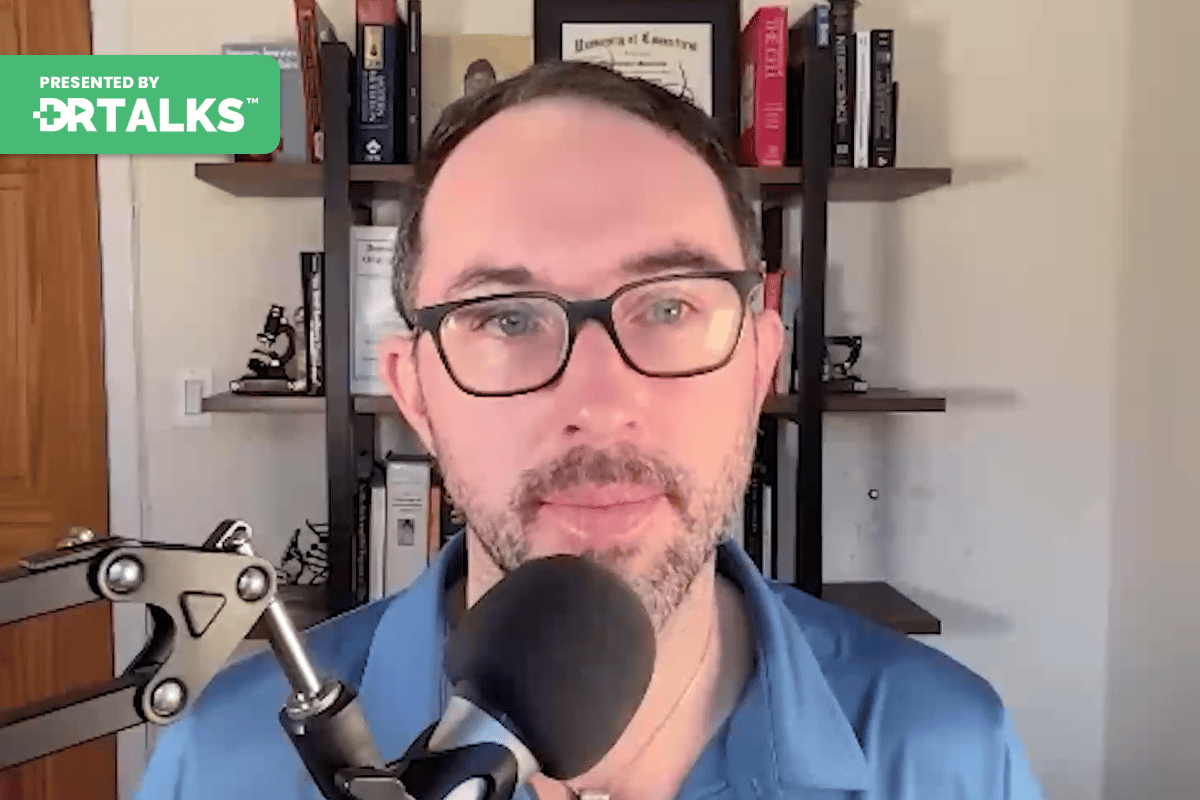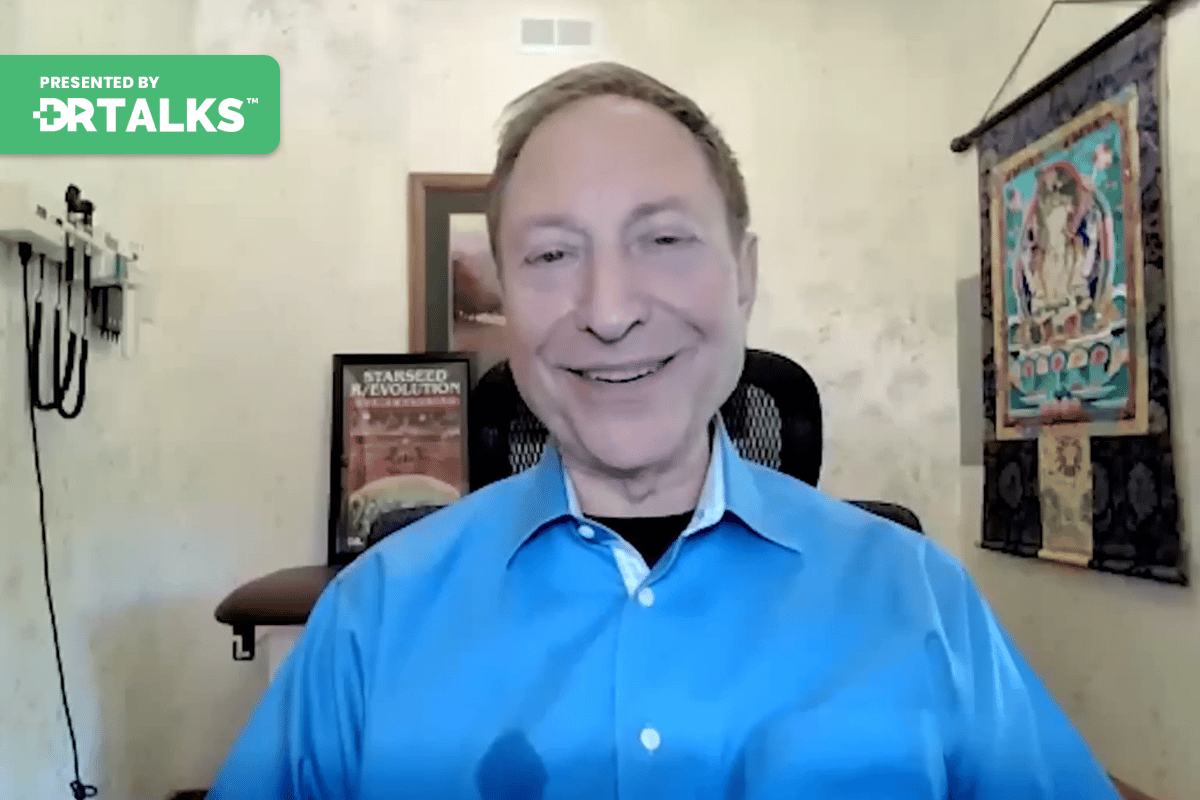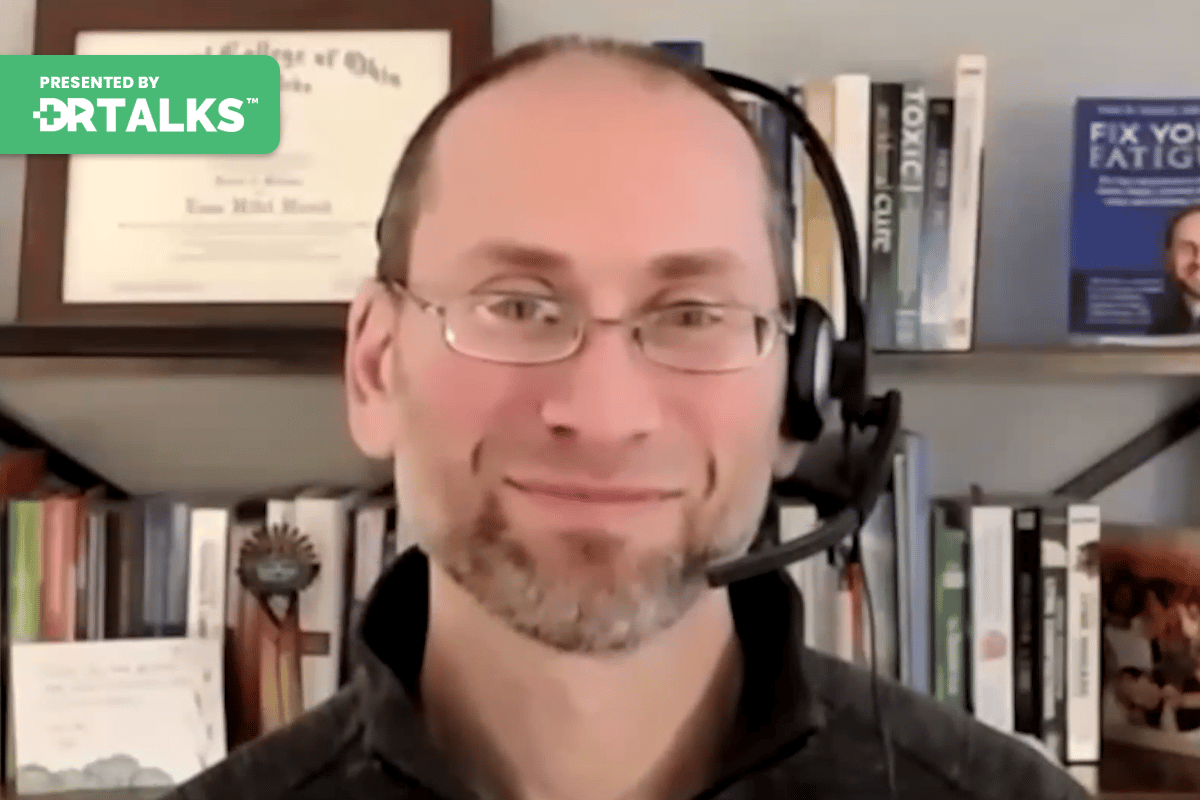Join the discussion below

Dr. Miles Nichols is a functional medicine doctor specializing in Lyme, mold illness, gut, thyroid, and autoimmunity. After Dr. Miles personally struggled with chronic fatigue in his early 20’s, Dr. Miles dedicated himself to figure out the root causes. He suffered with and recovered from thyroid dysfunction, autoimmunity, a gut... Read More

I earned my PhD in Nutritional Sciences from the University of Connecticut in the summer of 2012. From September 2012 to August 2014, I served as a postdoctoral research associate in the Comparative Biosciences department of the College of Veterinary Medicine at the University of Illinois at Urbana-Champaign. From August... Read More
- How Chris notices his brain, mood, and anxiety improve dramatically with a dietary shift
- Theory of the nutritional biochemistry involved in the significant mood improvement for Chris
- Overview of general areas that are researched for potentially relating to mental health concerns
- Testing to assess nutritional status to identify possible imbalances and dysfunctions that can mood and cognition
- How methylation relates to mental rigidity or flexibility
- MTHFR and COMT genetic polymorphisms and their relationship to methylation dysfunction
- Riboflavin as it relates to methylation and protein mis-folding and migraines
- Importance of also doing mindset and cognitive work and how biochemistry work can help
Dr. Miles Nichols
Hello everyone and welcome to the Microbes and Mental Health Summit. I’m here today with Chris Masterjohn and Chris. Masterjohn is a PhD in nutrition sciences and from the University of Connecticut. He has been someone who I’ve respected for a long time with an immense capacity to understand biochemistry and to look at research and comb through studies and distill it down into some of the things that is a perspective that I’ve not heard from other people before. And so, Chris has come up with some really interesting ideas related to microbes, things like covid 19 as well as to some understandings related to neurotransmitters like serotonin and dopamine in the nutritional biochemistry and has a really wonderful handle on nutrition as it relates to microbes and mental health will be going into details around nutrients today. Welcome Chris, thank you for being here.
Chris Masterjohn, PhD
Thank you so much. It’s great to be here
Dr. Miles Nichols
Chris, how did you become deeply immersed into the world of nutritional biochemistry and research? What drew you in?
Chris Masterjohn, PhD
Well, I think it goes back to when I was a teenager, I saw my mom had her own health journey that kind of unfolded before my eyes and I watched her try to deal with fibromyalgia which had her in pain every night and she went down multiple alternative health type of routes and made a lot of progress in achieving a dramatically better largely pain free state and so that was impressed upon me and my mid teens and I became interested in just following different, reading different health books and following different diets and things like that. And that probably did more hard than good to me in the short term, but I’m better for it on the other end because when I went vegan, I basically had a complete neurological catastrophic falling apart Along with my teeth falling apart and numerous other body systems falling apart. But after that I discovered the work of Western price who in the 19 well, he was originally a the research director for what became the American Dental Association for several decades. And over the course of his research, he decided that there there it looked from his observations like there must be protective factors that were missing in the american diet that prevented tooth decay. He didn’t believe it was all about the microbe in the mouth feeding off the off the sugar.
And so it was known in anthropology that there were many people who, many populations who were immune to tooth decay or at least it was rumored in anthropology that this was the case and surprise, decided to travel the world for the better part of two decades and look at what caused the immunity to tooth decay among these populations. And to make a long story short, he believed that the fat soluble vitamins found in animal products, especially in nose to tail type animal products. So organ meats of large animals, whole animals when they’re small, like insects and frogs, and also full fat dairy and egg products and shellfish were the major sources of the most important nutrients. And so I learning about this reflected on this, these were not in my diet and I started eating more of a nose detail.
Organ meat, heavy bone broth, inclusive, egg yolk heavy diet and my whole body and mind just went under a complete revolution. So I’ve written in detail about this, I would suggest if people want to read the story, they can go to chrismasterjohnphd.com and search for my experience of vegetarianism and I have a many page, you know, kind of mini book about this. But this was the major turning point that gave me a profound appreciation for just how utterly important and central nutrition is to our mental and physical health and you know, I got a PhD in it.
Dr. Miles Nichols
Yeah and you mentioned urologic changes, you mentioned your mind shifting and that’s something you want to dive into a little bit more. Were there specific emotional, mental emotional changes that you noticed or brain fog or brain symptoms? What specifically when you say neurologic and mind what changed for you?
Chris Masterjohn, PhD
Well, the big obvious part was when I was a teenager, I had developed some anxiety disorders, like a little bit of all of them and they all got dramatically worse when I was vegan to the, you know, to the point where I think I was like borderline psychotic. There were times where I was afraid to eat because I thought my food was poisoned or drugged. And I remember one time in particular where I was so hungry, but I took my veggie burger out of the freezer and I spent 20 minutes inspecting the packaging, looking for signs that had been tampered with, Until I finally discovered that it was like split apart. And of course I probably did that in my 20 minutes of examining it, but I wasn’t sure if if I had done it or if it had been there the whole time, and so I threw it across the room at the wall in anger and then went and you know, cried and screamed inwardly about how, you know, angry I was at myself for not being able to eat anything. So fast forward to, I discovered these dietary principles from Western price and implement them two or three months in. I’m working at the, at the you mask dining hall kitchen where I’m a dishwasher and one of my jobs is to put the plates out and I’m putting plates out and I watched this guy pick up a stack of plates and take a plate from the middle and I judge this guy in my head, I walk away, I’m like, the guy’s kind of weird, like why didn’t he just take the plate from the top and then like ho hum pushing the plate cart and then 10, 15 seconds go by.
I’m like wait a second and then I suddenly, I remember myself from two or three months before that how that was the absolute least neurotic thing I ever did with the dishes. But I always did it. In fact I was responsible for cleaning the dishes and I would still spend 20 minutes looking for a glass that was clean enough for me to drink out of not trusting any of them, even though I was in charge of not in charge, but you know, I was part of the process. And it was at that moment was a major turning point because it was not only was I all better, but it had become completely foreign to me to have any neuroticism around eating so foreign that I had forgotten my life from a few months before that to the point where I’m judging this guy as if who would do that.
And just realizing how rapidly everything had so completely changed was the real big turning point for me. But I also I have to look at my medical records, but because I don’t really trust my mom’s memory, but she claims that she brought me to the emergency room up to seven times during this because I demanded to go when I was having a panic attack and I don’t remember this. So I’m gonna have to see if she’s right because if she’s right, then. I also had like, pretty bad memory loss during that period.
Dr. Miles Nichols
Yeah. Yeah, that’s incredible. That’s an incredible transformation in a reasonable period. I’d love to get into now knowing what, you know, with your very, very comprehensive knowledge around nutritional biochemistry and around some of the understandings of the pathways and the research that’s available. I don’t understand a little bit about what’s your current theory on what happened in relation to the biochemical pathways that allowed for you to overcome that neuroticism. There’s this and we can go a lot of angles with this and there’s a some theories about why depression sets in and and the serotonin theory is very much in question at this point, and inflammation is a big body research on that. So there’s lots of arguments about the mechanisms and the biochemistry pathways that are playing a role in that. But what are your main theories of some of the biggest pieces that played a role in this transformation or logically mentally emotionally for you?
Chris Masterjohn, PhD
Well, one of the central pieces of evidence that I consider is that most people do not have such a catastrophic reaction to veganism, nor do they have such a miraculous binary recovery from animal foods. Now, that’s not to say that there isn’t a high prevalence of mental disorders among vegetarians, actually, anxiety disorders are much higher among vegetarians than among omnivorous people. There are numerous studies that document that there’s questions around what comes first, the chicken or the egg. You know, you might have certain personality traits like perfectionism that go along with vegetarianism, that also predisposed to anxiety disorders.
But if you, the other thing is, there’s a lot of ex vegetarians and vegans, so if you if you just look at the cross sectional data, it’s not super reliable, but no one has really taken a cohort of vegetarians or vegans and perspectively followed them to watch when they quit and why they quit. But ex vegans and vegetarians outnumber current vegans and vegetarians by at least two or 3 to 1. So I’m not, I’m not suggesting that my experience has no generalize ability at all. However, most people who are ex vegans and vegetarians do not have anywhere near as dramatic story as I have. So, given that it’s been my suspicion for about 20 years, that’s how old the story is that I have a genetic deficiency in the ability to synthesize or recycle something that is much higher in animal products than plant products or possibly only found in animal products that is extremely deficient or absent on a vegan diet that is very rich in organ meats compared to other other animal foods.
And that it was not in any of the supplements that I was taking at the time when I was a vegan, and I currently believe that I may have come across the answer and I believe it might be a compound of two or three different Hetero ziggy’s genetic deficiencies in the biotin pathway or the pathways that are dependent on biotin. I believe that for a couple of reasons, one is that I’ve done a lot of lab testing this year and biotin is the one thing that is very low compared to my diet. So it’s very discrepancy in my diet which is consistent with the defect in absorbing or transporting it. And then also, you know, by biotin is most abundant in liver and egg yolks compared to any other food. And so it does fit the story. And then there’s a lot of other symptoms that kind of line up with it. So, for example, when I was a child, I had an extremely common experience with conjunctivitis. To the point where like I had a road map of like a whole protocol of like if I wake up and my eyes don’t open, what do I do? And whole body eczema at several points in my life often colliding with conjunctivitis and those, those all kind of paint a picture like that. So I actually think that most of my life has been spent in a somewhere between a severe bite and efficiency and a mild biden deficiency depending on my diet. But, you know, I’m still working on it and I’m probably in six months, I’m going to have much clearer answers. I’m also waiting on data from whole genome sequencing and whatnot. That I think will clarify a lot of answers. But, you know, it’s interesting because that might not be the first thing you would think of. If you were to, another way to approach nutrition and mental health would just be to look at the different neurotransmitters and their rules and neurological diseases.
And then reason back from that. And you can go back to look at the rules of different nutrients and synthesizing them and so on and so forth. And that that might be a great idea and a great way to look at it if you’re leading with symptoms but leading with symptoms is not always the best thing to do because symptoms can be extremely overlapping between different causes. And if you’re dealing with something that, like I’m talking about, that’s fairly rare. Adding up all the rare things becomes not that rare, especially when you narrow it down to the proportion of people who have health problems that they have been trying to solve for a long time and haven’t solved them within that population. I think the total collective some predisposition to rare diseases to the, you know, 1400 something. Rare diseases is probably collectively high.
Dr. Miles Nichols
Yeah. And this is where personalized lab testing and medicine comes in? Very important to look at, what are these genetic predispositions, how do people individually express symptoms from different causes? And in this summer we’ve gone over many causes for mental health, but there’s so many that aren’t able to be covered and are unknown and are not understood. So when we do make some kinds of generalizations, we definitely have some aspects of neurotransmitters in the brain playing a role. Although the serotonin role has been put into question.
As I mentioned earlier, there are associations with neural inflammation, with brain, auto immunity, with aspects of gut microbiome, dis regulation and so many of these aspects that can trigger mental health symptoms are things that we can talk about and have from perspectives in other conversations in this summit. So what I’d love to get from you is your sense of if we do have to speak in general to someone who is experiencing a mental health disorder and speak to where would be some of the low hanging fruit or the significant areas of the nutritional biochemistry pathway or a place to start with testing, where would you recommend that people go as a beginning?
Chris Masterjohn, PhD
As the beginning. If you were going to try to take a fairly narrow approach, I would look at methylation first and I think from a from a lab work perspective, the Genova methylation panel is the best place to start incidentally methylation, people think of B 12 folate choline beta in and things like that. But methylation is to activate the system, you need energy. And so if you have any deficiency in any energetic pathway, you’re going to compromise your methylation. And so I actually have lab data supporting that. So my engine over methylation panel that I ran this year, which I looked exactly like I expected it to once I had my hypothesis that I was describing before, which is a specific pattern that will show up that where you can see that it’s energy deficiency and it’s not one of the nutrients compromising the pathway.
I think if people want to take a broader approach than doing a comprehensive nutritional assessment is highly advised. I would still run the Genova methylation pathways specifically because I think mental health more often than not involves methylation issues. And I would also include a strategy, genetic report. There are many genetic reports, but that’s my preferred one on the well let’s say, covering the mental health side of things. But a comprehensive nutritional assessment, generally speaking, if you’re going to try to find an efficient way to do it would be to run either the Genova ion panel plus plus 40 amino acids or the new travel plasma and that those cover functional markers, but then you also want your serum levels.
And I think the vibrant American micronutrient panel is the best way to do that because you can it’s one panel that covers almost all the vitamins and it also looks in plasma and inside cells which can reveal transport issues, right? So like you can look at your serum magnesium, you can look at your red blood cell magnesium, but if your red blood cell magnesium is low, you don’t really know that that’s not because you know, are you deficient magnesium or you’re not transporting it into your cells. And so if you put together if you put together either the Genova ion plus 40 or the new travel plasma with the vibrant american micronutrient panel really the one thing that you’re missing is serum biotin. So I would get that from quest or labcorp.
That’s a pretty comprehensive micronutrient panel. I would add the methylation panel and the strategy just for an emphasis on mental health and that would be my starting place. Of course some people’s health journey is less data intensive. But you know, I think if you’re not going to run the data you’re gonna spend a lot more guesswork which is gonna take a lot more time. You’re gonna have to rely a lot more on trial and error. But you know it but you’ll say you’re basically you’re saving money and you’re wasting time by doing a trial and error approach and what I would do. There is just kind of try to reason about what how the symptoms correlate with certain neurotransmitters and then look at what regulates those transmitters to production and clearance and then go from there for building the hypothesis that you could look at. You could put a dietary analysis into something like chronometer where it’ll give you your your vitamin and mineral intakes. And you can use that as a substitute for looking at lab data on your status. And then you can say all right. If you know if seems like I have low dopamine. If you know that could be these five nutrients. Look at your dietary analysis and if one of those is very low then that should be your first choice of something to try supplementing or bringing up with your food and then you just have to do that over and over again until you get results.
Dr. Miles Nichols
Yeah. And with the new treaty bell adding the vibrant micronutrient panel and a serum biotin. I think it’s also missing iodine. Do you recommend a serum iodine or urinary iodine on top of that as well.
Chris Masterjohn, PhD
Yeah with iodine you probably the only reliable way to do that is to get several 24 hour urine iodine? Sarah my the thing with iodine is you have if you eat like a robot then you could probably just do a serum iodine and and leave it at that you know but if you don’t eat like a robot. You really need to because the thing is there aren’t any markers of iodine status that are not just reflective of very recent intake. You could argue that thyroid markers could be used in that way, not in a specific way, but certainly if you run a thyroid, if you run a thyroid panel and you have kind of a classical hypothesis, hypothyroidism with TSH running high and T. Four running running low, that would be consistent with not getting enough iodine.
I also think that iodine is something where It’s definitely worth looking at status if you have a if you have a plausible. Well if you want to be comprehensive or you have a plausible symptom, a logical reason to do so. But it’s also like I think everyone, if everyone just consumed a little of something from the sea, like seaweed as a as a flavoring would probably be the easiest thing. Like get a seaweed shaker and just shake someone some of your food that would go a long way towards preventing any kind of frank iodine deficiency. The problem is that terrestrial foods are incredibly variable, like a potato from one soils 100 times higher in iodine than a potato from another soil, even within the United States. And a lot of times you don’t know where your food is coming from or it’s coming or it’s all coming from the same place and you don’t, you don’t know where it actually is. And if it’s you know, if you are have bad luck and therefore eating food, terrestrial food from iodine poor soils, then that’s gonna be your main reason for becoming iodine deficient.
Dr. Miles Nichols
Yeah, well let’s go back to two methylation and explain how that relates to the mind and mental health and thinking and cognition. And what is it about the methylation process? And what data do we have supporting that defects in methylation, genetics and or deficient methylation or excess methylation or a combination of that is going to impact mental health.
Chris Masterjohn, PhD
So method the there are several ways. One of them is the relationship to dopamine. So if first of all methylation is needed for dopamine synthesis, but on top of that methylation is regulating dopamine in a way where more methylation makes you more mentally flexible and less methylation makes you more mentally stable. And if you cut off the tails and you just look at the distribution of mental flexibility and stability, that really just gives you a spectrum of personality traits that is desirable within a population because you have some people who are very good at, for example, you know, you want your computer programmer to be very focused on one problem and be able to work on it for days before moving on to the next thing and you want your ceo to be able to make 350 decisions in one day.
That are all high quality decisions that are on different topics. So you want that spectrum but on either end you can run into pathologies. So for example, impulse disorders are on the pathological end of mental flexibility and O. C. D. Is on the pathological end of mental stability. And if you look at schizophrenia you have multiple phenotype. Sis in some schizophrenia you have flight of ideas. And in other schizophrenia you have rigidity of thoughts. And these are just Extremes of you know being able to not let go of a thought or being able but not being able to discern between the 4000 different thoughts that might fly through your mind in a day. And in terms of data, I think the cleanest data is to look at the genetic polymorphisms in cattle call, o. Methyl transfer or C. O. M. T. Which have colloquially colloquially been called the warrior with a the soldier phenotype. And the warrior with an O.
The O. Know what’s gonna happen type. And you know, but even that is sort of like the soldier seems noble and the person worrying seems pathetic. But even that if you actually look at the data what you see is that they’re not they’re not good and bad phenotype. They’re just different types. So the you know the pathetic person is actually really good at school. But is you know is less good at not at being able to look at emotions negatively stimulating emotional images and not have their amygdala light up with emotions. You know so there it is, it’s really just a spectrum. But in any case when you’re on the pathological ends what you see is the C. O. M. T. Variations that are associated with more I should say CMT is the enzyme that uses methyl groups from the methylation system. The method, dope immune. It does other things but it’s that’s one of its key things that it does. And so what this is what you’re seeing is fast. C. O. M. T. Genotype is associated with more methylation of dopamine. Slow C. O. M. T. Genotype is associated with less methylation of dopamine. And what you see is that the methylation of dopamine via that those genotype differences is associated with all the you know mental disorders in the way that I was just describing. So that all the things that you would expect by their nature to be associated with the inability to be mentally flexible are all associated with a socio. M. T. And all the ones that are associated with the inability to pay attention to anything like A. D. H. D. Impulse disorders etcetera are associated on the other end now if you look at something like M th fr which slow em th fr means less methylation and as a result of that means less methylation of dopamine regardless of your c. O. M. T. Status.
This story I should also say anxiety and depression are a little bit more wishy washy. And I believe the reason for that is that generally speaking slow methylation is going to make you less able to get rid of ideas in a mental and emotional states that you don’t want. But whether the idea is mental and emotional states that pop into your mind are stimulating of anxiety or depression is dependent on many other things right? So you can have slow methylation and you can be more mentally stable. But if all the other things going on in your brain lead you to just think about work, all that means is that you’re gonna be success at work.
Whereas the other things predispose you to an anxiety stimulating thought or depressive stimulating thought or mental or emotional state. The low methylation will mean you can’t let go of it and and will make you more vulnerable but that doesn’t play out as cleanly in the epidemiological literature because there are so many things that go into whether you have those thoughts that doesn’t change the fact that basic logic says that it’s going to be much more uphill battle to do the cognitive work that you need to do or to do the other biochemical work that you need to do if you have anxiety and depression paired with slow methylation because why fight against the inability to let go of thoughts if you don’t have to write.
So even though it’s not when you look at em th fr it’s also not a clean story, there’s a lot of conflicting studies that are less convincing than C. O. M. T. But that’s because m th fr it’s a general, first of all, it’s a general enzyme in a system that has some redundancies. So you can get around a slow em th fr with other nutrients also rival flavin’s. There is some evidence that slow em th fr isn’t actually slow, it just needs a higher riboflavin requirement to lead to the same m th fr activity. So riboflavin status it’s gonna be varying. So those things are gonna cause variation whether m th fr even impacts methylation, but even if it does an impact in methylation doesn’t automatically translate into a change in how much you method dopamine because you know, maybe you have a fast C. O. M. T. And you have slow methylation, they just cancel each other out and you get normal methylation of dopamine. So because of those things, the epidemiological literature is very messy but that you know to to someone who can think through the pathway that messiness should not prevent us from just making basic sense out of this, which is we know the physiology, we know how it’s going to play out and so so even if the epidemiological literature is not super clean that shouldn’t stop us from using these tools in our toolkit.
Dr. Miles Nichols
Absolutely. And methylation is one that I see all the time in the clinic when I do test for it. That is there’s frequently there are frequently issues. And even if we look at the data around a very different mechanistic process of for example the auto antibody attack against dopamine receptors that can be stimulated by strep infection or lyme infection or Barton ella infection or Epstein Barr certain other viral infections. We know there’s a subset of people are genetically predisposed to have a cross reactive autoimmunity against things like dopamine receptor sites and we can see sudden onset of things like O. C. D. This rigidity.
This mental over rigidity after that effect on dopamine recess and potentially other structures in the brain. So we see some other ways in which some of this can occur and as a result being able to assess for and identify not only infectious causes but also look at how methylation is going to impact the body’s ability to regulate dopamine is really important I think for people who are struggling with mental health issues. And so you mentioned with m th fr which was one of the popular ones that a lot of people know about as creating some challenges with methylation that riboflavin being higher riboflavin need potential compensating for that genetic polymorphism, which I have found as well. And I really feel like that’s important.
I know you’ve also spoken about riboflavin at higher doses having protein folding effects, protein misfolding effects. Do you think the, I know the protein folding and high dose riboflavin has data on migraine headaches. So it probably has some neurological and or mitochondrial underpinning to it that might relate to protein folding. Can you say a little more about whether high dose riboflavin and the mechanisms of that aside from methylation may also impact any neurologic symptoms?
Chris Masterjohn, PhD
Yeah I’m not sure how well established the protein folding connection to the migraine studies it is I haven’t looked at all the mechanistic data there but there’s definitely a lot of trial evidence supporting 200 to 400 mg of riboflavin having a positive impact on migraines. With trials with lower doses not showing that suggesting that you need high dose riboflavin is doing something that only high dose riboflavin does. Because the normal doses of riboflavin from the diet are more in the single digit milligrams. The origin of the protein folding thing is that high dose riboflavin was traditionally its traditional use was for genetic deficiencies and riboflavin transporters. And what happened was it turned out to be helpful for genetic deficiencies that had nothing to do with the riboflavin pathway and then research was done to try to figure out why we’re shown that it had this protein folding effect. But the hypothesis there is that it’s a co factor for one of the enzymes in the end, a plasma particular involved in chaperoning the folding of proteins. And so there is still this oddity which is, you know, why would this particular enzyme require such high doses of rival flavor to be activated.
And two things that pop into my mind are that maybe there’s variations in that enzyme genetically that are just common enough lying in the background that might make or break whether the riboflavin helps. However, you know, an alternative hypothesis that might make the rival flavor much more universal in its application, misfolded proteins is maybe the universal response to misfolded proteins is a massive proportional increase in the chaperone proteins that are trying to correct them. And if those are dependent on rival flavor and then, you know, maybe you don’t have any genetic deficiency in the chaperone protein. And maybe you know, would not otherwise have any reason to need such high doses of rival flavor. But the mere presence of misfolded proteins causes a dramatic increase in a compensatory increase that is the only way you can activate them.
You know, if you have a 400 fold increase in the amount of proteins that are trying to correct the misfolding which and this is fascinating because maybe maybe you just have a, well, first of all, I mean maybe this is applicable, applicable in in prion diseases and things like that, but maybe you just have a genetic defect that causes protein misfolding. Maybe you know, the the sum total of genetic defects that cause protein misfolding all responds to high dose rival fled in. I mean that’s that’s a possibility that I don’t think has really been fully explored because it’s out in the literature but I don’t see that anyone’s really taken the ball and run with this.
You know, but if you just as a thought experiment, if you imagine that any protein misfolding causes a proportional increase in the endo plastic reticulated misfolded protein response. I mean this pathway is known to exist. It’s called the misfolded protein response or the it’s called something like that anyway. If you just assume it’s proportional to the problem, then you know, it may be that your the need that you have for riboflavin to fix the problem is proportional to the problem. And so if it’s you know, if your genetic deficiency gives you a 400 fold screwed up protein folding problem then you need 400 mg of riboflavin instead of one. You know, it’s it may be something like that, but I don’t I don’t know, it’s been a while since I looked at it and I don’t know if anything has come out recently, but to my knowledge there is not a huge body of literature on this, there’s a very small body of literature on it but you know but but I think but I think I put out a video a few years ago called high dose riboflavin for unresolved health problems, question mark. Which is basically like if you can’t figure it out, try it and see what happens, why not, you know.
Dr. Miles Nichols
Yeah. Yeah. Now when it comes to you mentioned that nutrients like riboflavin can help with the m th fr defect that contributes to the methylation problems that relate to mental health issues. How about the C. O. M. T. In terms of you mentioned that the nutrient roles that can correct mth fr which would be B. Two and then I know Colleen and and you know methylated some people use methylated folate and B. 12 which may not be the most targeted things but but B. Two and Colleen in particular showing good research there. Is there anything that directly impacts CNT from a biochemical nutritional perspective that can help with regulating the methylation of dopamine?
Chris Masterjohn, PhD
You mean like independent co-factors of C. O. M. T.
Dr. Miles Nichols
Yeah independent co factors of C. O. M. T. Or if people do run strategy and C C. O. N. T mutations. What would be the,
Chris Masterjohn, PhD
Well one thing yeah. One thing one thing to look out with the genetics is that a lot of these reports give you a red marker if you’re double plus meaning your homesickness for something in a yellow marker if you’re hetero sickness for it. But being yellow in that sense for CMT is totally normal. So CMT is distributed in the population where 50% have 50% have the heterocyclic form which is normal CMT and then 25% on each and have the other one. And so it’s these remember this is not a disease and it’s not even a defect. It’s just a a very even distribution of C. O. M. T. Activity across the population consistent with a trade off in the with the trade off being what we were talking about before with personality traits. I’m just I because I didn’t know off the top of my head, I’m just looking it up here and I don’t I don’t think outside of I don’t think in humans or mammals, CMT is known to have any other nutrient co factors besides what’s provided by the methylation system. I do know that there are some like effects of estrogen and vitamin D. And stuff on it. So there you know there are things that can make it go up and down based on you know health status and things like that. But I haven’t done too much work into that.
Dr. Miles Nichols
Okay so if we’re doing a big picture on methylation then we have the nutrients that are involved in the methylation pathway. And we have B. Two. We have Colleen as two of the big ones there. We have potentially some of B. 12 and full aid. So overview of that, I know there’s also other things that can impact that like creatine and Sam E. And B. Six. And so when you’re looking at the high level of someone is struggling with a methylation issue and they’ve run a panel from the nutrient perspective first which do you make sure are adequate? And then if the nutrients aren’t enough, you mentioned energy status. And is that where you go next?
Chris Masterjohn, PhD
Not really. I look at the pattern that’s on the panel. So one pattern would be that you’re not recycling homocysteine to Matthias nine. And so if you if someone’s Mathias is low relative to their homocysteine and that that’s the obvious driver of of the well okay let me backup. So if someone is accidentally Athenian is low they have a low methylation state because methane is the end product the methylation system that then feeds into the many many metal transfer aces that control many many many things. And so if that is normal you probably don’t have a methylation problem. That’s not to say that you don’t have some other problem that intersects with the methylation pathway but it’s not feeding into low s or Sammy.
Then. But let’s just assume that it is on the low side of normal or it’s or it’s flagged as low. The question then is you know why is it low? And so if the Athenian and Sammy are proportional to each other but the Athenian is very low compared to the homocysteine, you know the person has the classical problem of not recycling homocysteine. Athenian that’s the common all pervasive normal supplement with some four letter B 12 type problem. There are other things on there that the genome methylation panel doesn’t have serum B. 12 and folate or or red blood cell levels. But if you pair it with the vibrant, like I was saying before you would have those and you can go and you can cross check them but you can also look at like which of the things that would do that is low. Right? So Colin and Gideon are on the genome methylation panel b. 12 and fully it would be on the rest of the blood work.
And you could make a reason a recent argument about which you need to supplement with. Another problem would be that the homocysteine metabolism is being over activated. And so you are losing methane as a result of that. If that’s the case you should have probably low normal or low homocysteine. Maybe even flag glow with an elevated level of the of the cata bolic products of homocysteine system, just Athenian Sistine etcetera And generally that’s driven by there are some genes in it but they’re not very clear how the snips relate to the the actual physiological outcome. But the main drivers of that would be well it should happen with excess methylation but if it’s being but if it is the driver of low methylation then oxidative stress is probably going to be a driver of that. And you could corroborate that potentially with low glutathione on the genome methylation panel. And then the third pattern would be the energy deficiency pattern. And I see this a lot but I think it’s because of the bias of the clients that I get. I would think this would be the least common problem. But I don’t know that to be true because most studies don’t look at these metabolites, they just look at this sort of simple things. And so if your homocysteine is not high, they leave it at that.
But I believe in the general population is theoretically should be the least common problem. But the energy deficiency problem is going to is going to look like Matthias is accumulating at the expense of selma thiamine. And homocysteine is accumulating at the expense of homocysteine. So if you seem Athenian and s homocysteine being high. And as the Athenian and homocysteine being low, that’s what energy deficiency looks like. So I would I would reason back from the panel and they can be mixed and the panel can be very unclear because of the mix. But if you have one problem then it will look like what I just said and then you can peel back the next layer. Like why do you have an energy deficiency problem?
Dr. Miles Nichols
And with an energy deficiency problems. Method is mitochondrial function in the first place to go at that and or other nutrient deficiencies that may be involved in mitochondrial path.
Chris Masterjohn, PhD
Yeah, I mean, yes, but mitochondrial dysfunction is meaningless lee vague. You know, there’s like if you mitochondrial dysfunction could be you know, a deficiency of any of the B vitamins, a deficiency of iron, copper sulfur deficiency of magnesium or a genetic deficiency in the electron transport chain or the citric acid cycle or fatty acid oxidation or pyre of a car box lists or prior of a. D. Hydrogen ist. I mean you can just go on and on and on and those things do not have the same treatments. Even in the electron transport chain, you know, you have a complex one complex to complex three disorder.
Those are not at all gonna respond the same way to different treatments. So I think labeling something a mitochondrial disorder is it’s all I mean, all you’ve done is you’ve just taken several 100 things and categorized them at the expense of maybe 1000 other things. Right? So you’ve narrowed it down to several 100 things, but I don’t know that it helps that much. And my experience just like floating around on the internet is generally when people talk about mitochondrial disorders, they don’t know that, right? So that like when someone says I have a mitochondrial disorder, they think that that’s one thing, not 300. And so therefore I question whether it’s even useful to talk about mitochondrial disorders as a thing. I’m not I’m not saying it’s useless, but I’m just saying that, I think the way that we talk about it is feeding into people without science backgrounds very much misunderstanding it as a monolithic type of thing. And they and you know, to the point where they don’t understand that, like a keto diet could cure one mitochondrial disorder and cause complete utter catastrophe in another one. You know, if you have a fatty acid oxidation disorder, you can have.
So, for example, one of my one of healthy until he started intermittent fasting, doing keto diet, eating a lot of coconut oil and running marathons. And then he went into complete complete metabolic crisis and then felt like he had never recovered from it fully and just felt like crap all the time after that. You know, then you but you take someone who has like a take someone who has a disorder and carbohydrate metabolism and put them on a keto diet and they’re cured of their problem. Right? So it’s I think yeah, you know, the mitochondria drives the bulk of energy metabolism, not all of it, but the bulk of it. And so it’s probably gonna be something mitochondrial but that barely narrows it down.
Dr. Miles Nichols
Sure. So in our last little bit here to to summarize and wrap up aside from methylation and doing comprehensive testing and assessment for nutrient deficiencies, are there any other significant things that you think would be useful to people who are struggling with mood or brain disorders and would like to improve those. Would there be any other things that you’d recommend that they investigate trial or take note of in their health journey?
Chris Masterjohn, PhD
Well, I imagine someone, you know, the best thing we can tell someone who just spent all this time listening to this. And I imagine a lot of the other talks in the summit is don’t neglect the cognitive work because the biochemical this isn’t, there’s another thing, there seems to be people who think like everything is a chemical imbalance or nothing is a chemical imbalance, which is completely bizarre to me. This is kind of the I listened to, I went through William Walsh’s book nutrient power recently and he’s just convinced that well he makes it sound like he’s convinced that you know, someone’s psychological and traumatic history is like a sideshow to the actual problem. And I don’t believe that humans are whole organisms and the biochemistry and the physiology and the neurochemistry and all of this is the biochemical milieu in which your, you know, your mind and spirit are are are operating and what what do what working on this stuff does is make it an uphill or a downhill downhill in the sense of easy. So an easier or more difficult or more easy battle to to deal with the issue. But that doesn’t that doesn’t neglect that you you will probably need to do work on your mindset and your coping mechanisms and your framework for seeing the world and things like that. So, I think the real big other piece of the puzzle is this is making the physical part of your body make it easy or possibly just well take my extreme. I didn’t do any cognitive work and I was just, you know, cured by eating liver and egg yolks.
At least at that time, you know, I’ve since realized that actually, I, you know, it’s not as black and white for me, but there may be other other people where what’s going on in their brain from a biochemical perspective is just making it 50% harder, aggravating what would otherwise be kind of a negative mental framework into something pathological, but what you want to do is take away the pathological biochemistry and then it will become easy for you to do the mental work too, develop a positive mindset, you know? But there are other people where some people cannot do any cognitive work at all because their biochemistry is running diametrically opposed to a healthy mindset. And so it’s completely futile and they will run themselves into despair if they try to do mental work. So what you need to do is you need to alter the biochemistry to make it favorable to feel like you have some control over your mind, but then you need to take control of your mind.
Dr. Miles Nichols
Thank you for bringing that up this mind body approach is so important and to underplay the experiences that people have gone through the struggles. The challenges would be a disservice. The underlying biochemistry can worsen or make easier the way in which a person has the capacity to regulate nervous system and to be able to have handle and mentally be flexible enough or rigid enough to move through an experience gracefully. But that experience itself definitely has its impact in the mental emotional work around that experience and how a person relates to their life experiences past and present.
Make a big difference and thank you for bringing that context in as well. And we can potentially think of modulating biochemistry as potentially having some, maybe a threshold or capacity to be able to work with that mental emotional side perhaps a little more elegantly, a little more easily. So, thank you. I appreciate that perspective. So, I know some people will want to find out more about you and your work and where they can learn more about you. So where is the best place for people to go? Who want to start to dive deeper into nutritional biochemistry and how that might relate to chronic disease and health in general.
Chris Masterjohn, PhD
Best place to go is chrismasterjohnphd. substack.com. That’s where all my that’s the clearinghouse for all my content. And then of course, if you’re interested in specific topics, you could go to go into the search box and type in neuroscience or methylation or anything like that and you’ll you’ll come up with podcasts and articles and whatnot, and then check out the menu where I’ve got e books and courses and different offerings like that.
Dr. Miles Nichols
Wonderful Chris this has been a pleasure. I think this is really informative and has added a dimension for people to explore related to methylation, nutrients and genetic changes. So thank you so much for this. Thank you everyone for watching. This has been another episode of Microbes and Mental Health Summit. I’m your host, Dr. Miles. Take care and have a wonderful day
Downloads










